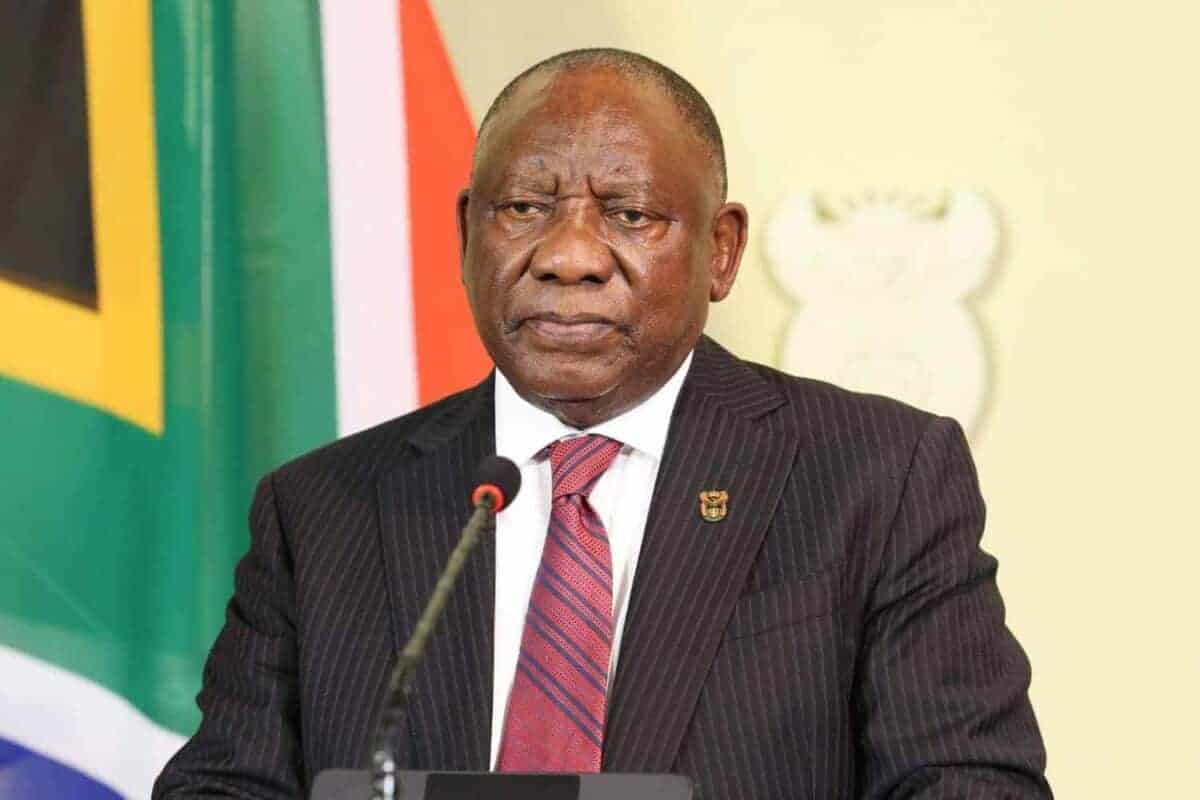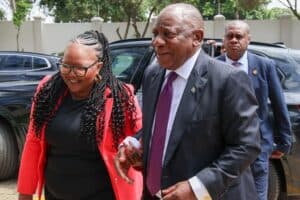Speculation grows over President Ramaphosa’s future as analysts warn any return of Thabo Mbeki would risk his legacy and destabilise the ANC.

Rumours that President Cyril Ramaphosa could resign have once again thrown the ANC into the spotlight, with political analysts warning that any attempt to bring back former president Thabo Mbeki would be a grave miscalculation.
Speculation about Ramaphosa’s future intensified after reports emerged from the ANC’s national working committee meeting over the past weekend.
According to insiders, discussions included the possibility of Ramaphosa stepping down and Mbeki being asked to serve as acting ANC president until the party’s next elective conference in 2027.
ANC insiders mull Ramaphosa stepping down
Ramaphosa himself has previously indicated that he would not cling to power if the ANC formally requested his resignation. In a daring challenge to his critics, he said he would oblige if opponents within the party came forward and made the demand directly.
This has emboldened speculation his presidency could end prematurely, echoing a pattern that has become familiar in ANC politics.
Prof Ntsikelelo Breakfast, director of the Centre for Peace, Security and Conflict Resolution at Nelson Mandela University, argued the ANC has developed a “culture of recall”, where presidents rarely complete their terms.
ALSO READ: US potentially backtracks on boycotting G20
He cited the removal of Mbeki in 2008 and Jacob Zuma in 2018 as examples, noting that Ramaphosa could easily face the same fate.
“It has become a culture for ANC presidents not to finish their terms of office because they get recalled before the expiry of their terms,” Breakfast said.
Yet Breakfast warned strongly against the idea of Mbeki returning to lead the ANC, even in an interim capacity.
Expert warn ANC risks damage if Mbeki returns
He pointed to lingering tensions between Mbeki and figures such as Ramaphosa, former treasurer-general Mathews Phosa and party stalwart Tokyo Sexwale, who were allegedly involved in plotting Mbeki’s removal during his presidency.
“On what basis would Mbeki come back? Is he getting involved now because of unfinished business in the party?” he asked.
Despite acknowledging Mbeki’s stature as a respected leader and intellectual, Breakfast argued that his legacy would be at risk if he returned.
ALSO READ: Ramaphosa declares GBVF a national crisis
Mbeki is widely credited with championing Pan-Africanism and initiatives such as the New Partnership for Africa’s Development and the African Peer Review Mechanism.
“His intellectual contribution is out of this world with regards to Pan-Africanism and African Renaissance,” Breakfast said.
“So, against that background, why would he want to erode his good legacy by returning to lead the ANC whose brand has been dragged in the mud? It doesn’t matter who would preside over it, it would never bounce back.”
ANC is ‘terminally ill’
Breakfast went further, describing the ANC as “terminally ill” and facing “natural death.”
He warned that Mbeki would risk humiliation if he returned, particularly from younger politicians such as EFF leader Julius Malema in parliament.
“If he returns, Mbeki will be making a big mistake,” he said.
ALSO READ: US warns South Africa over G20 joint declaration as tensions simmer
“This is not about the ANC; it’s about individuals because I don’t see any positive improvement in the outcomes of the ANC.”
Prof Dirk Kotzé, a political scientist from the University of South Africa, echoed some of Breakfast’s concerns.
He stressed that Mbeki cannot constitutionally return as president of South Africa, having already served two terms.
Ramaphosa’s resignation would be ‘massive mistake’
“There is no possibility of him returning in that capacity,” Kotzé said.
He added that Ramaphosa’s resignation midway through his second term would raise serious questions and represent a major concession by the ANC.
“That would be a massive mistake,” he warned.
ALSO READ: Ramaphosa pushes back as ANC tension grows
Kotzé also highlighted a crucial shift in the political landscape: removing a president is no longer solely an ANC decision. Under the government of national unity (GNU), the ANC must seek consensus from other parties.
The DA would almost certainly oppose Ramaphosa’s removal, while parties such as Zuma’s uMkhonto weSizwe and the EFF would welcome it. If the ANC wanted their support, it would likely have to accommodate them within the GNU.
Party trapped between its own internal divisions
Together, the analysts paint a picture of a party trapped between its own internal divisions and the realities of coalition politics.
Ramaphosa’s future may hinge not only on the ANC’s internal battles, but also on the willingness of other parties to support or resist his removal.






